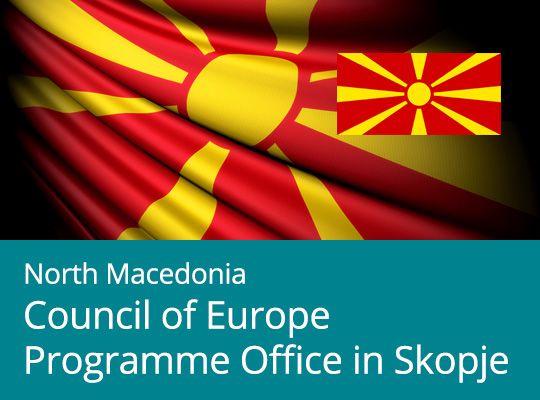Health professionals are a key element in the identification of human trafficking victims, and often the first professionals to be in direct contact with trafficking victims. The joint EU and Council of Europe action on “Preventing and Combating Human Trafficking in North Macedonia” in co-operation with the Institute for Public Health organised two focus groups targeting health professionals who may come in touch with potential human trafficking victims. Twenty doctors and nurses from emergency aid, gynaecologists, surgeons and paediatrics gathered to provide their input to the information material, which will provide a succinct information about human trafficking, the responsibilities of medical professionals and the referral procedure. The key objective is to highlight the importance of well-trained medical professionals in identifying potential trafficking victims, helping and referring them to the anti-trafficking institutions, so that they can receive protection and exercise their rights under the Council of Europe Convention on action against trafficking in human beings and national legislation.
“Generally speaking, many health professionals know little about human trafficking and cannot recognise indicators of human trafficking. The goal of the focus groups is to contribute to information material, so that health professionals can facilitate identification of potential trafficking victims in good time and provide their contribution to preventing and combating human trafficking” – said d-r Elena Kjosevska, Professor at the Institute for Public Health, who has extensive experience with providing health assistance and protection to vulnerable groups.
Other distinguished speakers were Dr Jorg Pont from the Medical University of Vienna, Dr. Daniela Ivanova Panova who directly works with victims of gender-based violence, including trafficking victims, Marija Todorovska from the leading anti-trafficking non-governmental organisation ‘Open Gate’ and Marija Risteska, a gender expert. Dr. Jorg Pont succinctly explained the risks and consequences of human trafficking for the victims’ health, the ethical code and the requirement for a comprehensive medical assessment. Dr. Daniela Ivanova Panova spoke from her own experience of helping victims of human trafficking and documenting their cases for court proceedings. She underscored the vulnerability of the child victims, and special attention that they must receive from medical professionals.
“The biggest inequality between men and women remains in the economic domain. In particular, poverty, along with reinforced gender stereotypes, discrimination and domestic violence, is a push factor for women and girls to become victims of human trafficking, ” - stated Marija Risteska. Marija Todorovska explained the anti-trafficking structure in the country and the functioning of the Centre for victims of human trafficking and gender-based violence, which is managed by Open Gate.
In the focus groups, the participants spoke about their experience with victims of gender-based violence and human trafficking and discussed the human trafficking indicators, security issues and how to make the system of referral of victims in medical establishments efficient and effective in order to provide timely protection and assistance to potential victims of human trafficking.
This training was organised under “Horizontal Facility for the Western Balkans and Turkey II ”, a co-operation initiative co-funded by the European Union and the Council of Europe and implemented by the Council of Europe, which aims at assisting beneficiaries in South-East Europe to comply with the Council of Europe standards and European Union acquis in the framework of the enlargement process.




